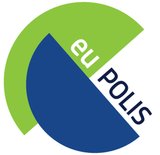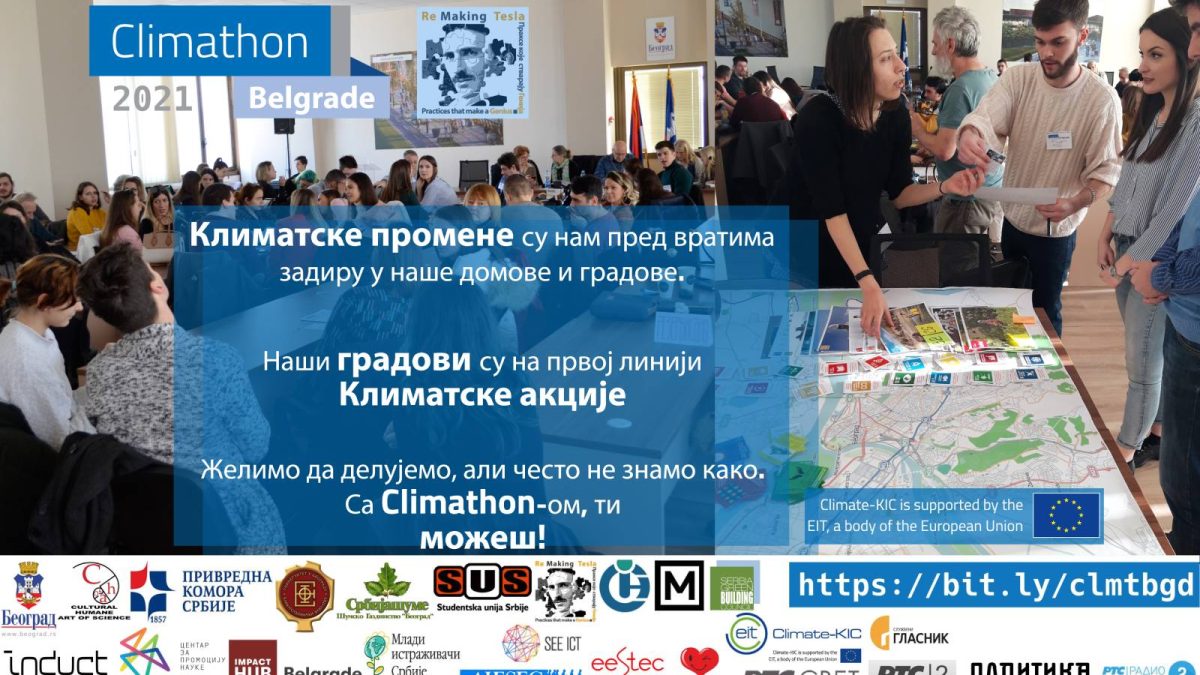Mikser&Climathon: Transform your city from gray to green
Mikser Organization, as part of the Belgrade team of the euPolis project, is proud to announce cooperation with “Climathon Belgrade – ReMaking Tesla 2021.
This year’s Climathon, with which Belgrade is traditionally part of the most massive collective climate action in the world, will be held on November 27 and 28, 2021, organized by KeOS, with the support of the Secretariat for Environmental Protection, the Serbian Chamber of Commerce, Mikser and a number of partners.

Two euPolis demo locations in Belgrade (the Linear Park on Dorcol and the experimental blue-green park on the Danube Quay between the Hotel Yugoslavia and Karadjordjev Park) will be in the focus of this year’s challenge: “Transformation of public spaces – from gray to green. Community Support”,
The event is ONLINE and open to all teams and individuals – students, activists, entrepreneurs, startups, business leaders, policymakers – regardless of the level of knowledge. Also, all those interested in registering will have the opportunity to follow the event online.
Participants who register HERE get to solve the challenge. They will be inspired and trained for that by experts from the Netherlands, Italy, Serbia, Bangladesh, and Nigeria, as well as the expert team of the euPolis project, on the topic of environmental protection, urbanism, (landscape) architecture, crowdsourcing, and community work. Collective innovation and creativity will also develop, through the integration of this event with the international education forum ReMaking Tesla, supported by the Ministry of Trade, Tourism, and Telecommunications.
The work of the teams will be supported by advanced technologies, such as the domestic IT system EcoColabo, for online development of ideas, feasibility analysis of solutions, and work with mentors and the City during and after the event.
Participation is free, competitors will be given certificates, and the best solutions will be presented at the next Mikser Festival in May 2022, where teams will have the opportunity to network with international experts in related topics. Their solutions will become part of the manual for urban practices of other pilot cities in the project (along with Belgrade, there is the Danish Gladsax, Lodz in Poland, and Piraeus in Greece), but also instructions for the process of urban planning in cities around the world.
Also, the winning teams will become Belgrade’s euPolis partners and thus participants in all local workshops where they will be able to implement their knowledge, ideas, and experiences in innovative, nature-inspired solutions in urban areas, which is the leading philosophy of the euPolis project.

